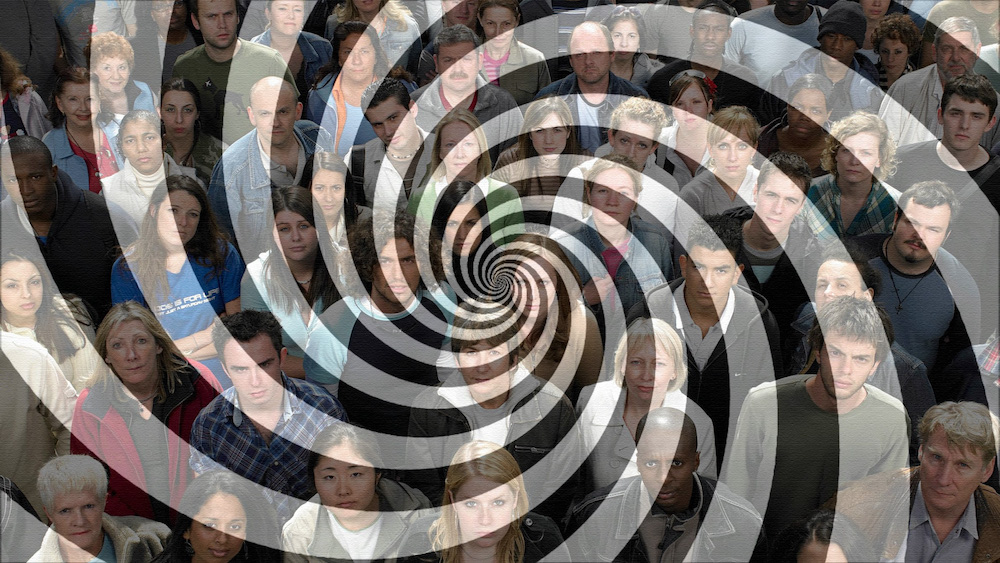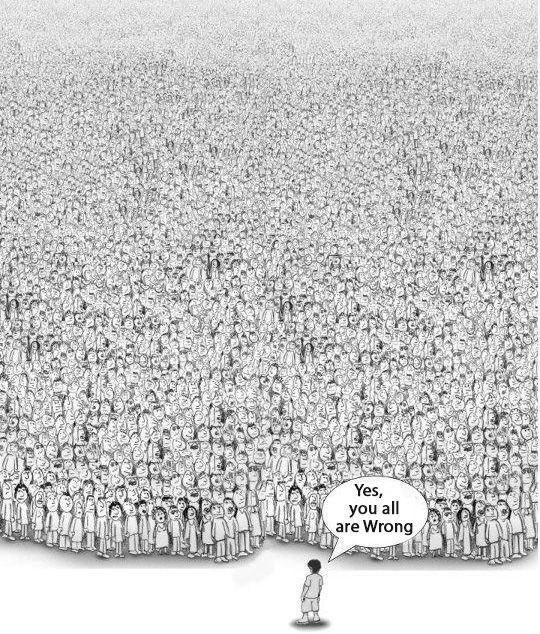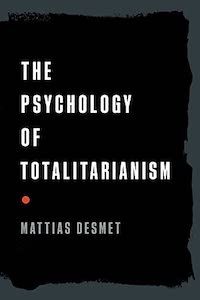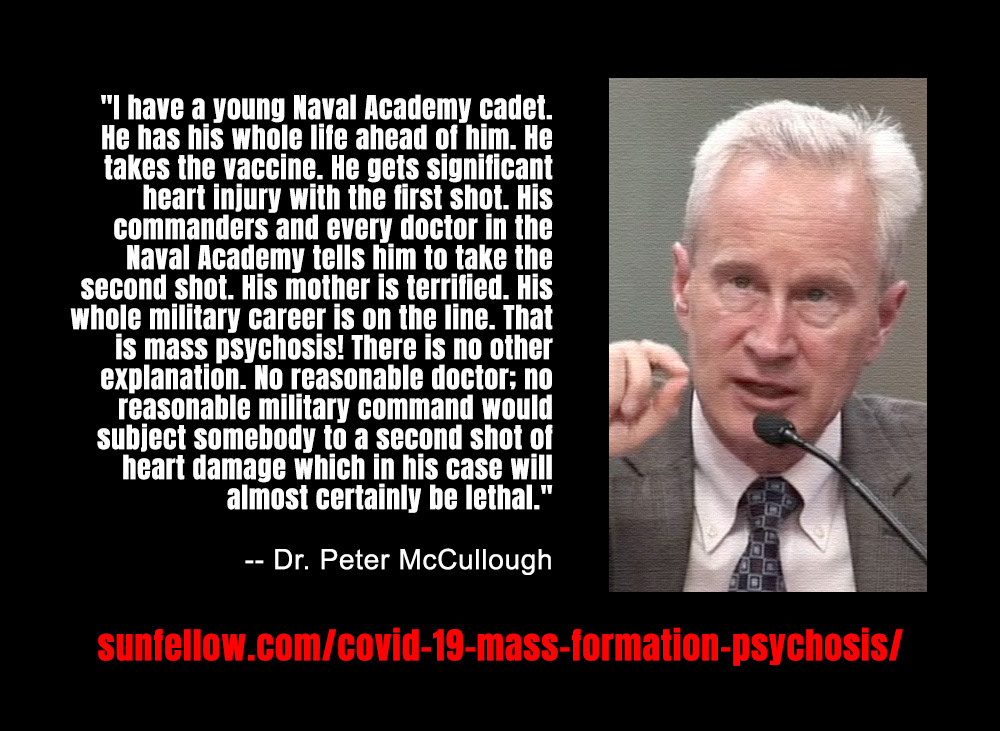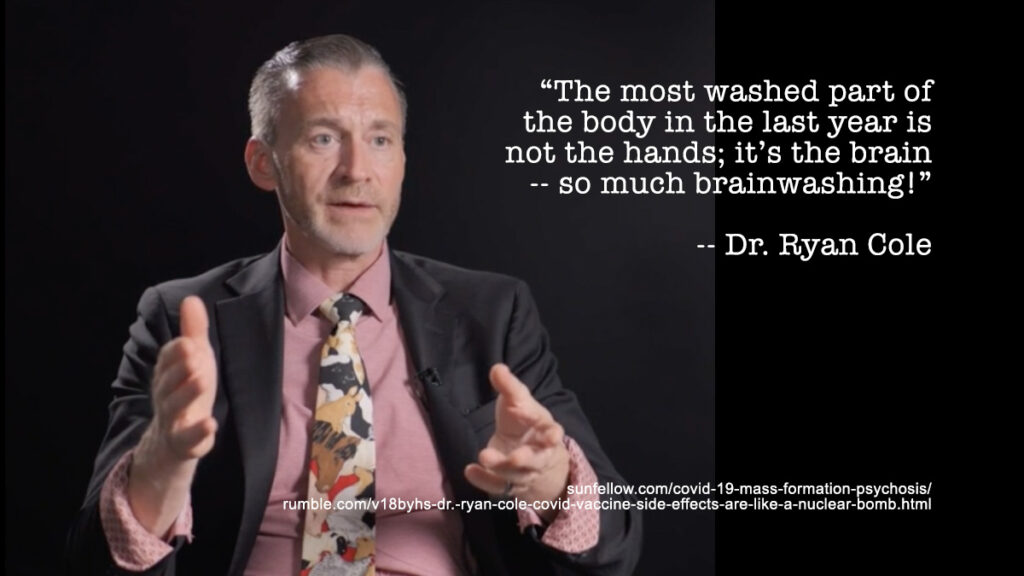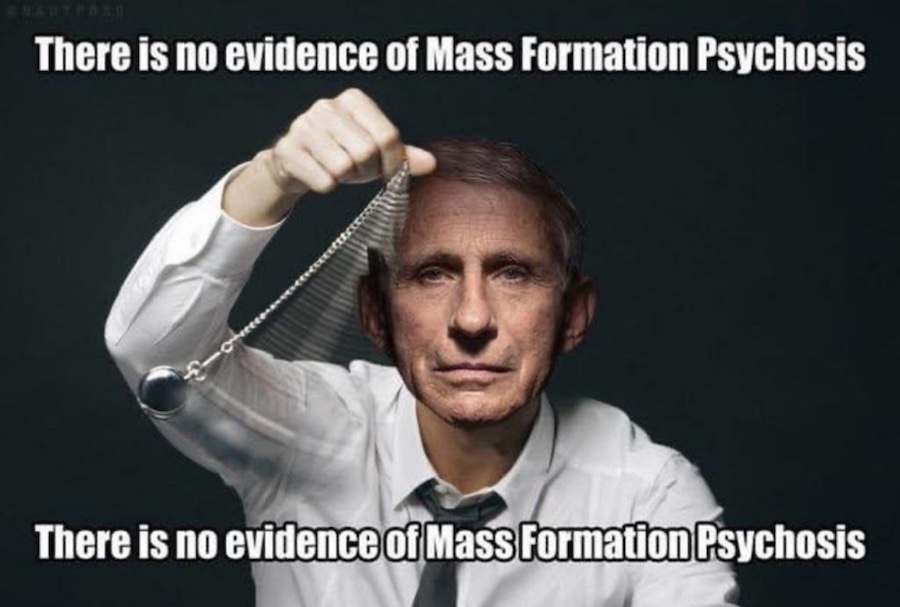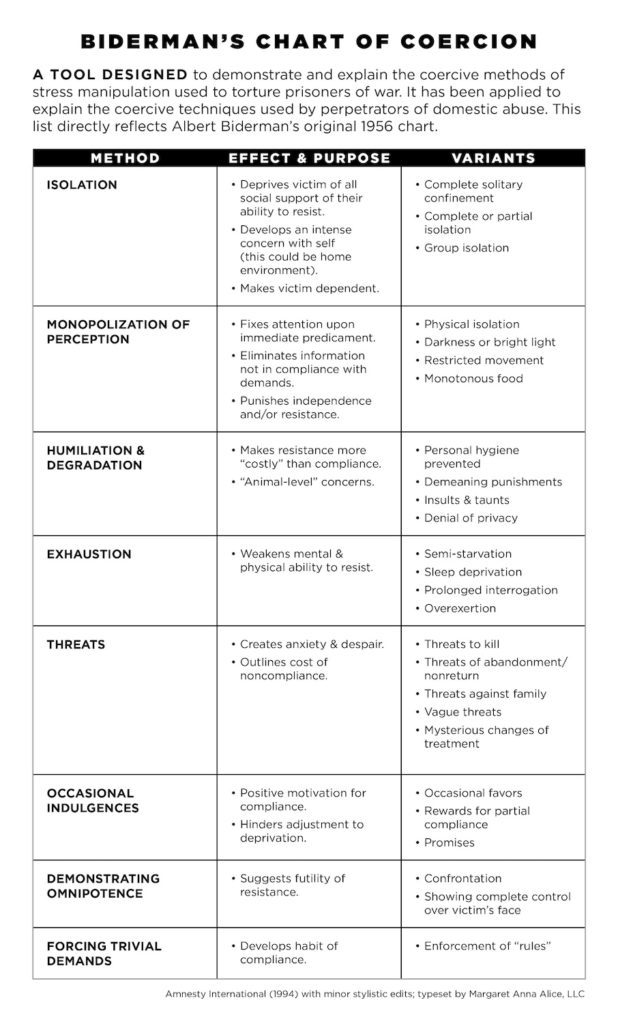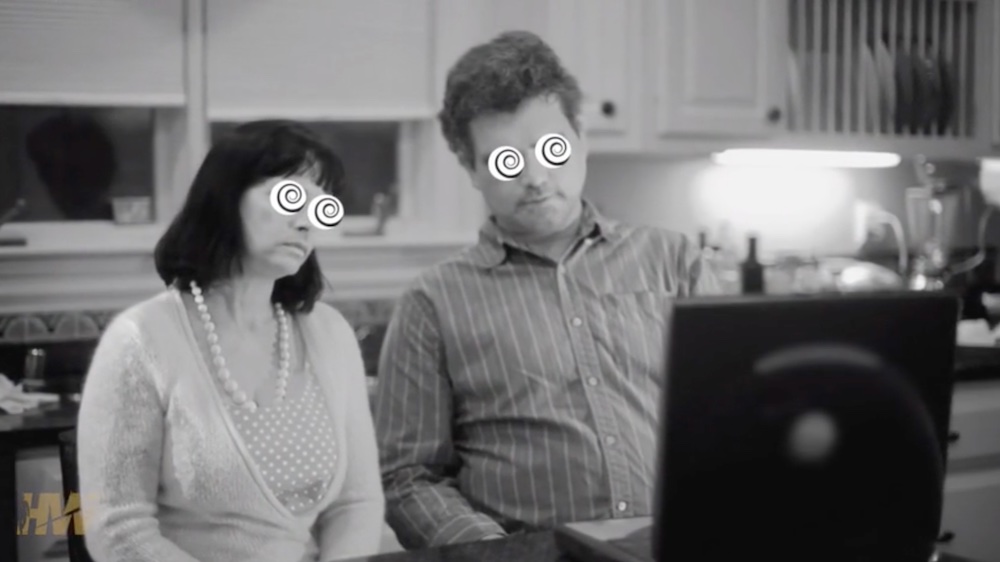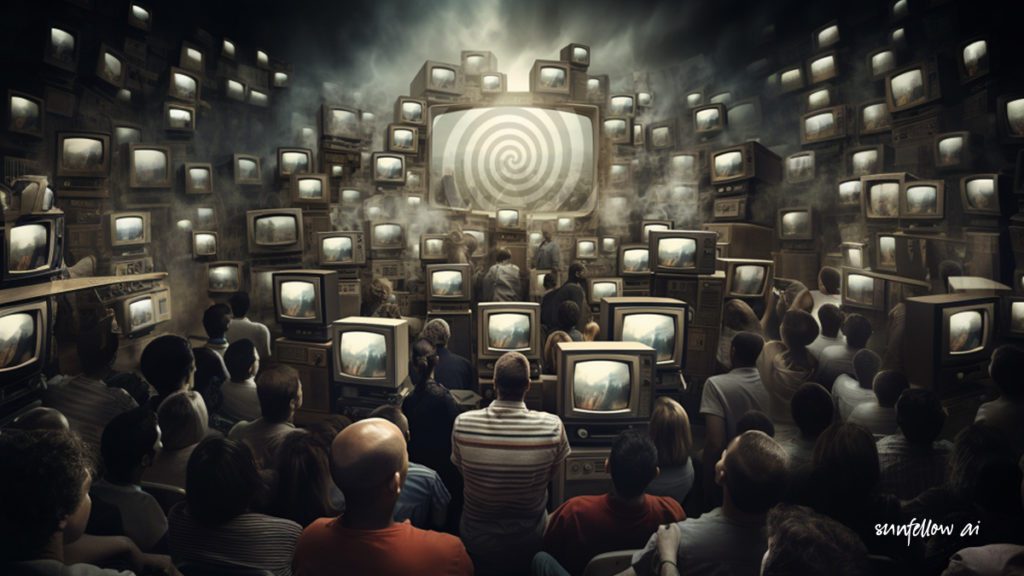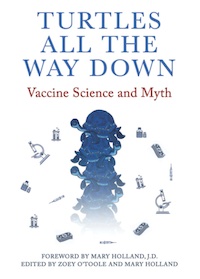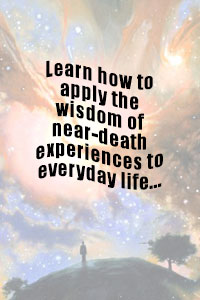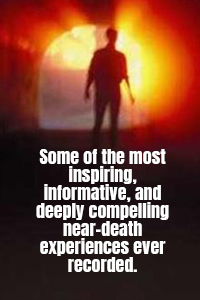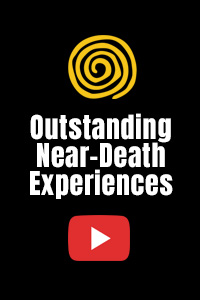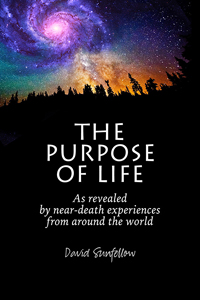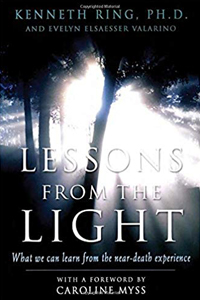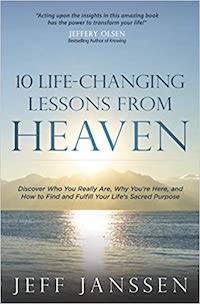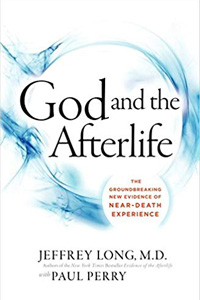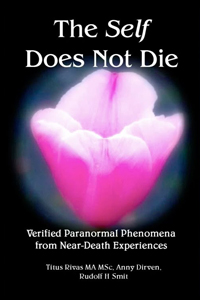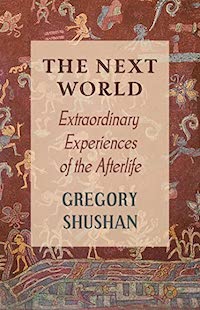……………..
“I spent almost a week in Spain last month working with and learning from Mattias. In my opinion, he is a true genius, and deserves to be recognized as an international hero for what he has done for us. And of course, he is taking flack from his university in Gent for having done so.”
…
“It is difficult to not conform to society’s unconscious influences. Only people who are firmly rooted in sound ethical principles can defy the powerful momentum of the masses.”
…
“The higher the level of education a person has, the more vulnerable they are to [mass formation] . . . Our educational system continues to teach us all to think in the same way. It alienates us from our original divine knowledge that naturally emerges in every human being. It keeps us from an important part of ourselves and attempts to force us to think collectively. This predisposition explains why many intelligent people that we know, including scientists, were very susceptible to mass formation, and suddenly incapable of seeing the blatantly absurd mainstream narrative of the corona crisis. Their lives were immersed in a narrow material version of reality from a source they refused to question.”
…
“In The Gulag Archipelago Aleksandr Solzhenitsyn writes:
” ‘If only it were all so simple! If only there were evil people somewhere insidiously committing evil deeds, and it were necessary only to separate them from the rest of us and destroy them. But the line dividing good and evil cuts through the heart of every human being. And who is willing to destroy a piece of his own heart?’
“There are many people who do good things and have good intentions and still choose to conform. So we have to be careful with divisiveness and conspiracy theories. Not that conspiracies don’t exist, they always have. And it’s certainly not appropriate that as soon as you go against the mainstream narrative, you are stigmatized as a conspiracy theorist. I believe we need conspiracy thinkers as they often bring a fascinating register of facts to our attention. Although we have to be very cautious, because there is a tendency to use this information to identify only a small group of people as pure evil, blaming them for everything that goes wrong.
“We should not deny the fact that we all, to some extent, are responsible for the situation we find ourselves in now. It’s easy to believe that big bankers are behind all events or that a small powerful group of people manipulates the entire global society for their own benefit. But there are two forces at work, there is someone who manipulates and there is someone who is vulnerable to manipulation. We have to open our eyes and become aware of the agenda of the elite, as of course, it exists. But as soon as we start to believe that they represent pure evil, that’s one step too far. Evil is much more complicated than something that is situated in a few human beings — while everyone else represents pure goodness.”
…
“The real enemy is not another human being; it is a way of thinking. When other human beings are identified as the enemy, we inevitably end up in a violent revolution, attempting to destroy the people who refuse to conform to our ideas. On the contrary, if you situate the enemy at the level of ideology, at the level of a way of thinking, you will be more tolerant of people who you consider your opponents. When you recognize their humanity, you will automatically choose a nonviolent resolution. Since the rise of imperialism, nonviolent resistance has been recognized as the only effective means of change.
“As soon as you start to consider violence and revolution you dig your own grave. Because all violence can be effectively controlled by the system. Violence is a gift to them because if the opposition becomes hostile, they gather support in the population to destroy the opposition. From an ethical, intellectual and tactical point of view — it’s madness to use violence.”
…
“It is critical to understand that the only effective response when confronted by totalitarianism, in order to make sure that the system will destroy itself before it destroys you, is very simple — never stop speaking out and standing up for ethical human values.”
…
“We are headed towards an ultimate worldwide, technocratic, totalitarian system. I am very confident that a small group of people will resist and defy the masses, refusing to conform. These people will go through a very fast process of mental evolution.
“When you look up, when you observe what happens from a little distance, you will see that it is resembling the birth of a new society. The dominant larger group is applying a lot of pressure on a smaller group of people, forcing this minority onto a path where it wouldn’t have gone without the pressure of the larger group. They will be pushed through a narrow dark hole forcing a transformation and a quick evolution. In the end, the majority will lose all of their energy, becoming weak and chaotic.
“The smaller group of people, if they make the right ethical choices, will go in exactly the opposite direction. Although initially they will feel at a loss, they will slowly become stronger and stronger. Those who are currently seen as outsiders will begin to encourage solutions and become wise advisors. After a radical collapse of the larger group, the smaller group will be ready to support the ethical principles necessary for a new kind of human society. That’s what I believe is the natural process we see unfolding.”
……………..
……………..
Dr. Malhotra: Some Vaccinated People Are Suffering From A Psychosis Called ‘The Delusion Of Benefit’
……………..
• The Election: It’s Gone Personal (Dr. Robert Malone, 10/31/24)
Tribalism on both sides is real, but the progressives amongst us have become rabid in their hatred of anyone who has or will cast their vote with Trump.
I get it. They view Trump as the dictator from hell. Therefore, they view Jill and me and others like us as vile — garbage — deplorable.
But it is more than that.
Through their lens, the world has become black and white.
Those of us who support Trump or Kennedy or both have become persona non-grata to our Kamala-loving friends and family.
During COVID-19, the government taught people that it is ok to exclude family and friends from social gatherings, family events, holidays, and even funerals based on vaccine status. To not allow co-workers at the job site, based on vaccine status. Cutting off parts of the family tree, removing those they don’t agree with from their physical location, has become normalized. It has even been encouraged by government entities, as well as political operatives in the entertainment and news industries…
• Has Neuroscience Found The Key To What Caused Zombie Nation? My Foreword To Bombshell New Book, ‘The Indoctrinated Brain’ The Science Of Brainwashing (Naomi Wolf, 11/27/23)
Dr. Nehls argues that the spike protein, along with other COVID measures, represents an intentional attack on the human hippocampus — where autobiographical memory and individuality itself originate — and that “fear porn” keeps us from holding on to the autobiographical memories that encompass our former selves. As a result, humans have become deindividualized, more suggestible, more forgetful, more compliant, and less able to engage in critical thinking and creative reasoning. This argument utterly accords with what many of us are seeing, to our horror, every day. Dr. Nehls’s The Indoctrinated Brain is an indispensable book because it applies neuroscience to politics and especially to the politics of fascism. The need for that has existed for as long as modern fascism has existed…
……………..
Why Is It So Hard To Change Someone’s Mind? (The Neuroscience Behind Confirmation & Anchoring Bias)
……………..
Jason Christoff: Weaponized Psychology & Propaganda During COVID-19
……………..
Most People Said: ‘I Wouldn’t Have Supported The Nazis. I Would Have Been Part Of The Resistance!’
……………..
Media: The Unvaccinated Are Scum!
……………..
“If You Are Unvaccinated The Virus Will Find You!”
……………….
Must Watch! Grabien’s Covid Retrospective Series (Volume 1, 2, 3, 4, 5)
……………….
Why Can’t People Admit The Harm Caused By Covid Vaccines? They Are In A State Of Personal Terror!
……………….
Doctors Promoting COVID-19 Vaccines Today Are Worse Than Doctors Who Promoted Cigarettes
……………..
Tucker Carlson Explains Why We’ll Never Get An Apology For What Happened During Covid
……………..
Dr. Peter McCullough Describes What “Mass Formation Psychosis” Looks Like In The Real World
……………..
Mattias Desmet & Tucker Carlson Discuss Mass Formation (Complete Interview)
……………..
Mass Formation – Brief Summary
• Totalitarianism requires the total obedience of the masses
• This obedience is been created via mass formation process inside the population
• Four conditions are needed:
1 – The masses must feel alone and isolated.
2 – Their lives must feel pointless and meaningless.
3 – The masses then must experience constant free floating anxiety, and
4 – They must experience free-floating frustration and aggression.
With these conditions met, people are now ripe for hypnosis.
• No matter how stupid, senseless or even harmful the “solution”, people are made to feel solidarity, which validates the whole thing for them.
• They are now changed, no longer rational. This automatically excludes analyses based on mathematical approaches like Nash’s game theory, where all agents are assumed to act completely rationally.
• People who are consumed by the mass formation process become intolerant and cruel.
— Source
……………..
The Psychology Of Totalitarianism
By Mattias Desmet
The world is in the grips of mass formation — a dangerous, collective type of hypnosis — as we bear witness to loneliness, free-floating anxiety, and fear giving way to censorship, loss of privacy, and surrendered freedoms. It is all spurred by a singular, focused crisis narrative that forbids dissident views and relies on destructive groupthink.
Desmet’s work on mass formation theory was brought to the world’s attention on The Joe Rogan Experience and in major alternative news outlets around the globe. Read this book to get beyond the sound bites!
Totalitarianism is not a coincidence and does not form in a vacuum. It arises from a collective psychosis that has followed a predictable script throughout history, its formation gaining strength and speed with each generation — from the Jacobins to the Nazis and Stalinists — as technology advances. Governments, mass media, and other mechanized forces use fear, loneliness, and isolation to demoralize populations and exert control, persuading large groups of people to act against their own interests, always with destructive results.
In The Psychology of Totalitarianism, world-renowned Professor of Clinical Psychology Mattias Desmet deconstructs the societal conditions that allow this collective psychosis to take hold. By looking at our current situation and identifying the phenomenon of “mass formation” — a type of collective hypnosis — he clearly illustrates how close we are to surrendering to totalitarian regimes.
With detailed analyses, examples, and results from years of research, Desmet lays out the steps that lead toward mass formation, including:
• An overall sense of loneliness and lack of social connections and bonds
• A lack of meaning-unsatisfying “bullsh*t jobs” that don’t offer purpose
• Free-floating anxiety and discontent that arise from loneliness and lack of meaning
• Manifestation of frustration and aggression from anxiety
• Emergence of a consistent narrative from government officials, mass media, etc., that exploits and channels frustration and anxiety
In addition to clear psychological analysis — and building on Hannah Arendt’s essential work on totalitarianism, The Origins of Totalitarianism — Desmet offers a sharp critique of the cultural “groupthink” that existed prior to the pandemic and advanced during the COVID crisis. He cautions against the dangers of our current societal landscape, media consumption, and reliance on manipulative technologies and then offers simple solutions — both individual and collective — to prevent the willing sacrifice of our freedoms.
“We can honor the right to freedom of expression and the right to self-determination without feeling threatened by each other,” Desmet writes. “But there is a point where we must stop losing ourselves in the crowd to experience meaning and connection. That is the point where the winter of totalitarianism gives way to a spring of life.”
“Desmet has an . . . important take on everything that’s happening in the world right now.” — Aubrey Marcus, podcast host
“[Desmet] is waking a lot of people up to the dangerous place we are now with a brilliant distillation of how we ended up here.” — Robert F. Kennedy, Jr.
……………..
COVID Vaccine Madness (Commercials, Music Videos, Press Conferences, News Reports)
……………..
Face Mask Madness
……………..
Robert F. Kennedy, Jr. – How “The Power Of Trusted Authorities” Was Used To Subvert America
……………..
The Asch Experiment – The Power Of Group Dynamics
……………..
MUST WATCH: Del Bigtree Interviews Professor Mattias Desmet About Mass Formation Psychosis
……………..
Juxtaposing Peter Breggin & Mattias Desmet (With Reiner Fuellmich & Viviane Fischer)
……………..
A Small Grocery Store Threw Me Out
By Jeffrey A Tucker @jeffreyatucker
July 3, 2025
A small grocery store threw me out four years ago because I wasn’t wearing a mask and would not. I was extremely bitter about this and have not been back.
Finally I went in today. I asked to see the manager. I told her what happened and why I’ve boycotted for so long.
She deeply apologized and explained that the health department was hounding them hard. Customers were taking pictures in the store and posting to evil Facebook, tagging the mayor. They daily faced shutdowns. They actually worried for a time that anyone WITHOUT a mask might be part of a sting operation.
In other words, they had suspected I was working for the government and testing their compliance.
Can you even believe that we lived through this reality?
In any case, despite all my knowledge, the possibility that the store itself face deep threats that forced the rudeness that led to my having been tossed out actually never occurred to me.
I was touched about the manager’s own apologies. I will return, no question.
How long will it take this nation to heal from such ghastliness? How many relationships shattered? How much suffering has ensued? It’s awesome to contemplate.
……………..
Related News & Articles:
• Looking Inward To Change The World (David Marks’ Interview Of Mattias Desmet)
• Am I An Expert In Mass Formation Or A Trojan Horse? (Mattias Desmet responds to Peter & Ginger Breggin – 09/04/22)
• Groupthink: We Are All Victims (Dr. Robert Malone – 08/06/22)
• Mattias Desmet: Mass Hypnosis Expert Or Trojan Horse? (Peter & Ginger Breggin – 07/27/22)
• A Mostly Peaceful Depopulation (Margaret Anna Alice – 0/03/22)
• Deriding Mass Formation And Dismissing Its Influence During A Global Crisis Is A Verification Of The Phenomenon (David Marks – 05/09/22)
• COVID Vaccines Have Made People More Belligerent, Which Could Have Catastrophic Consequences For Us All (Mark Crispin Miller – 03/21/22)
• Mass Formation: Deployed On You After Over 200 Years Of Study (Dr. Robert Malone – 01/10/22)
• The Geographies Of The Pharma Genocide (Toby Rogers)
• Use Of Fear To Control Behaviour In Covid Crisis Was ‘Totalitarian’, Admit Scientists (The Telegraph – 05/14/21)
……………..
Malone, Bossche, Desmet – The Round Table Discussion
……………..
Dr. Peter McCullough: Mass Formation Is At Work When Vaccines Kill People & There Is No Outrage
……………..
MUST WATCH! Dr. Peter McCullough On Mass Formation Psychosis
……………..
……………..
Mike Yeadon & Mattias Desmet On Mass Formation Psychosis
Excerpt:
“I agree that the greatest and the most dangerous enemy is in ourselves. The first week of the crisis I wrote an opinion paper which was titled ‘The Fear Of The Virus Is More Dangerous Than The Virus Itself.’ I see constantly very intelligent people, highly intelligent people who, in a miraculous way, are not able anymore to see that the counting of the number of contaminations, hospitalizations, the number of casualties claimed by the virus, leads to a dramatic over-estimation of events caused by the virus. That’s only one example. I see constantly around me people who have a PhD in statistics, for instance, and in an almost incomprehensible way, cannot see the major mistakes that are constantly made at the level of the figures, and the stats, and the models in this crisis. If you analyze this, maybe some people willingly manipulate the figures, but most experts in this crisis are in the grip of a psychological process that makes them blind and unable to see what is evident. That has everything to do with the way they handle their own anxiety and their own fear. If you handle your fear and your anxiety in a wrong way, then you end up in a very dangerous state as a society. And in that respect, I definitely agree with Carl Gustav Jung who said that this [humankind’s inability to deal with its own psyche] is more dangerous than a disease is.”
— Mattias Desmet
……………..
Mass Formation Psychosis – Dr. Mattias Desmet, Dr. Robert Malone, Dr. Peter McCullough
How to break the spell (55:44):
1. Speak out
2. Connect
3. Think about the new normal
4. Non-violent resistance
……………..
Professor Mattias Desmet On Our Grave Situation – We Must Speak Up!
Transcript Of This Interview • Backup Transcript Of This Interview
Who Is Professor Mattias Desmet?
……………..
Dr. Robert Malone – Billions Of People Have Been Brainwashed & Don’t Realize It
……………..
Mass Formation Psychosis
Or… Mass Hypnosis — The Madness Of Crowds
By Robert W Malone MD, MS
As many of you know, I have spent time researching and speaking about mass psychosis theory. Most of what I have learned has come from Dr. Mattias Desmet, who realized that this form of mass hypnosis, of the madness of crowds, can account for the strange phenomenon of about 20-30% of the population in the western world becoming entranced with the Noble Lies and dominant narrative concerning the safety and effectiveness of the genetic vaccines, and both propagated and enforced by politicians, science bureaucrats, pharmaceutical companies and legacy media.
What one observes with the mass hypnosis is that a large fraction of the population is completely unable to process new scientific data and facts demonstrating that they have been misled about the effectiveness and adverse impacts of mandatory mask use, lockdowns, and genetic vaccines that cause people’s bodies to make large amounts of biologically active coronavirus Spike protein.
These hypnotized by this process are unable to recognize the lies and misrepresentations they are being bombarded with on a daily basis, and actively attack anyone who has the temerity to share information with them which contradicts the propaganda that they have come to embrace. And for those whose families and social networks have been torn apart by this process, and who find that close relatives and friends have ghosted them because they question the officially endorsed “truth” and are actually following the scientific literature, this can be a source of deep anguish, sorrow and psychological pain.
It is with those souls in mind that I included a discussion of the mass formation theory of Dr. Mattias Desmet during a recent talk I gave in Tampa, Florida to an audience of about 2,000. As I looked out into the audience and spoke, I could see relief on many faces, and even tears running from the eyes of stoic men.
Unknown to me, someone recorded the speech and appended the vocal track to a series of calming images of natural landscapes, producing a video that has gone viral throughout the world. A link to the video, as well as some notes to clarify and supplement the talk are appended below. Many have told me that they find it very healing. I hope it may help you also.
A brief overview of Mass Formation, which was developed by Dr. Mattias Desmet. He is a psychologist and a statistician. He is at the University of Ghent in Belgium. I think Dr. Mattias is onto something about what is happening and he calls this phenomena:
Mass Formation Psychosis
So, when he says “mass” formation, you can think of this as equivalent to “crowd” formation. One can think of this as:
Crowd Psychosis
The conditions to set up mass formation psychosis include lack of social connectedness and sensemaking as well as large amounts of latent anxiety and passive aggression. When people are inundated with a narrative that presents a plausible “object of anxiety” and strategy for coping with it, then many individuals group together to battle the object with a collective singlemindedness. This allows people to stop focusing on their own problems, avoiding personal mental anguish. Instead, they focus all their thought and energy on this new object.
As mass formation progresses, the group becomes increasingly bonded and connected. Their field of attention is narrowed and they become unable to consider alternative points of view. Leaders of the movement are revered, unable to do no wrong.
Left unabated, a society under the spell of mass formation will support a totalitarian governance structure capable of otherwise unthinkable atrocities in order to maintain compliance. A note: mass formation is different from group think. There are easy ways to fix group think by just bringing in dissenting voices and making sure you give them platforms. It isn’t so easy with mass formation. Even when the narrative falls apart, cracks in the strategy clearly aren’t solving the issue, the hypnotized crowd can’t break free of the narrative. This is what appears to be happening now with COVID-19. The solution for those in control of the narrative is to produce bigger and bigger lies to prop up the solution. Those being controlled by mass formation no longer are able to use reason to break free of the group narrative.
Of course, the obvious example of mass formation is Germany in the 1930s and 40s. How could the German people who were highly educated, very liberal in the classic sense; western thinking people… how could they go so crazy and do what they did to the Jews? How could this happen?
To a civilized people? A leader of a mass formation movement will use the platform to continue to pump the group with new information to focus on. In the case of COVID-19, I like to use the term “fear porn.” Leaders, through main stream media and government channels continuously feed the “beast” with more messaging that focus and further hypnotize their adherents.
Studies suggest that mass formation follows a general distribution:
• 30% are brainwashed, hypnotized, indoctrinated by the group narrative
• 40% in the middle are persuadable and may follow if no worthy alternative is perceived
• 30% fight against the narrative.
Those that rebel and fight against the narrative, become the enemy of the brainwashed and a primary target of aggression.
One of the the best ways to counter mass formation is for those against the narrative to continue to speak out against it, which serves to help break the hypnosis of some in the brainwashed group as well as persuade the persuadable middle to choose reason over mindlessness.
Dr. Desmet suggests that for something as big as COVID-19, the only way to break the mass formation psychosis is to give the crowd something bigger to focus on. He believes that totalitarianism may be that bigger issue. Of course, after COVID-19, global totalitarianism may be the biggest issue of our time.
…………..
Professor Mattias Desmet – Mass Hysteria In Australia (Lockdowns)
Who Is Professor Mattias Desmet?
…………..
Prof. Dr. Mattias Desmet:
“Continue to speak out. If other voices are available in the public space, then the mass hypnosis will be disturbed.”
By Rhoda Wilson
The Expose’
October 26, 2021
“The most important thing for people to do is to continue to speak out even if it’s just to say that you don’t agree with the mainstream narrative because mass formation is provoked by the specific voice it’s gotten used to. Totalitarian leaders know this very well. They start every new day with thirty minutes of propaganda in which the voice of the leader constantly penetrates the consciousness of the population … If other voices are available in the public space, then the mass hypnosis will be disturbed.” – Professor Dr. Mattias Desmet, professor of Clinical Psychology at Ghent University, Belgium.
Prof. Desmet, who also has a masters degree in statistics, initially approached the “pandemic” through the eyes of a statistician. He realised the Covid statistics were wrong and began noticing that the long-term costs of the lockdowns compared to the benefits of using these measures to “flatten the curve” were never discussed. The field of attention, of the entire world, was entirely on the victims of the “pandemic” as if everything else no longer mattered. So, he switched to viewing the “pandemic” through the lens of a clinical psychologist and came to the conclusion that society was suffering from mass formation.
According to Prof. Desmet, mass formation is a type of mass hypnosis and has a huge impact on an individual’s intelligence and cognitive functioning. Around 30% of the population will succumb to mass formations while 30% will not. The remaining 40% will realise something is wrong, but may not understand exactly what, and remain silent.
Four conditions need to be present to create mass formation:
1. There needs to be a number of socially isolated people or people who experience a lack of social bonds.
2. There needs to be a number of people who experience a lack of ‘sense making’ and who are unable to come to sensible conclusions.
3. There is a lot of free-floating anxiety in society. Free-floating because there’s nothing to connect their anxiety to – no focal point, people are unable to identify what’s causing it – and so have no way to deal with it.
4. Additionally, there is a lot of free-floating psychological discontent where people feel their daily lives are lacking any purpose or meaning.
Disconnected people in society, who also suffer from free floating anxiety, connect their anxiety to a specific object, in this case Covid, and a new solidarity emerges.
To show solidarity to the newly formed group, people within this mass formation need to participate, for example: in lockdowns; wear masks; social distance; or, accept injections. It is almost as if the measures to defeat the object of anxiety – Covid – are really a way to prove to everyone else that they are a part of the new social group.
Mass formations are similar to religious groups and the symbols of the new social group, mask wearing for example, are similar to religious rituals which members will “push” to ensure their continuation. However, mass formation differs from a religion or cult in that its members do not recognise that their symbols are rituals.
A cult is a group or movement held together by a shared commitment to a charismatic leader or ideology. It has a belief system that has the answers to all of life’s questions and offers a special solution to be gained only by following the leader’s rules. It requires a high level of commitment from at least some of the members.
According to Janja Lalich, professor emerita of sociology at California State University, the key distinctions between religions and cults are: cults will rush you; a cult’s leader is their higher power; cults control rather than guide; and, cults make it impossible to trust fellow followers. The current mass formation facing our world seems to fit more with the description of a cult rather than a religion.
Any new science that conflicts with the current cult beliefs cannot be accepted by its members – they are closed off to new information. People become radically intolerant of dissident voices, those who challenge the official doctrine. These voices threaten to wake the people up and people within the cult get angry when confronted by the initial anxiety and discontent they experience. And so, the mass formation crowd direct all their aggression at dissident voices.
This is when cult members are able use the state to oppress dissenters – we see powerful people using the power of the state to lockdown innocent people or using police to assault innocent people in the street. Ultimately, this can lead to a totalitarian state where the state exterminates people who disagree with them.
Totalitarian leaders are often called dictators and in a certain sense this is correct. But there are differences, “in a classical dictatorship the population is not in the process of a mass formation, or not hypnotised, and that makes a huge difference. A hypnotised population or a population in mass formation behaves completely differently,” Prof. Desmet said, and “a classical dictatorship usually becomes less severe, less cruel and less aggressive towards the population once the opposition is silenced. In a totalitarian state – exactly the opposite happens.”
……………..
Professor Mattias Desmet – Why Do So Many Still Buy Into The Narrative?
Who Is Professor Mattias Desmet?
……………..
Forum Conversation: Mattias Desmet On Looking Inward To Change The World
By David Marks
November 11, 2022
Children’s Health Defense
In an exclusive interview with the Community Forum, Mattias Desmet, an author and professor of psychology who articulated the theory of mass formation during the COVID-19 pandemic, discusses the motivation for his work and his vision for how humans can find their way in our dramatically changing world.
Mattias Desmet joins the foundational thinkers on mass formation — the process of how huge populations become entranced by narratives. He now stands shoulder to shoulder with Arendt, Jung and Freud, psychotherapists who began to understand the precursors of crowd behavior.
Desmet’s analysis of how recent events and responses to the pandemic initiated a destabilized and divisive society presents a fascinating window into the minds of the most complex beings on the planet. Desmet’s seminal work, The Psychology of Totalitarianism, underlines the increasingly dangerous conduct of humanity — and emphasizes that it must be understood and reversed if we are to survive as a species.
…
Forum: Mattias Desmet, welcome to the Forum Conversation. Diverging opinions have caused lost connections with friends, family members and loved ones. It’s never easy to process and understand irrational and hostile behavior. Your perspective and writing has helped us to see behind a dark curtain.
Perhaps tell us something about your studies and work before the pandemic. Your paper on the Illusion of Objectivity in Psychology discusses a crisis in the field. What do you see as the pattern in your work? Is your inclination to look outside of the box?
Desmet: Yes, it is. From the beginning of my career, I sensed that there was something wrong with mainstream academic research, in particular in psychology. I immediately had a feeling that there was a kind of group-think mentality at my university. Everyone participated in the same research procedures without questioning methodology. It was clear to anyone who wanted to see it; the methods in most cases produced invalid research with extreme, strange absurdities. The psychology department expected me to do classical research using questionnaires and tests to measure all kinds of psychological characteristics in people. I was expected to study them in a statistical way.
I had a feeling that the instruments didn’t measure what they pretended to — and with an extreme amount of error. So I couldn’t continue doing such research. My Ph.D. promoter agreed that instead of taking a standard approach, I could investigate the research methods themselves.
Forum: In addition to having studied psychology, you used other knowledge and data for this analysis?
Desmet: I have a master’s degree in statistics and was able to apply this also, and showed in an extremely tangible way that if you measure the same psychological characteristic three times, the outcomes of the measurements are usually completely different. Initially, I hoped that other researchers would open their eyes. Instead, people at my university were angry with me because my work showed in a very clear way that most research methods just didn’t add up.
When I completed my Ph.D. in 2005, the so-called replication crisis began in the sciences and eventually demonstrated that methodological problems existed across most academic domains. Eighty-five percent of research papers and [studies in] medical journals cannot be replicated or reproduced. That was the moment when I started to see what society really relies on, and how it situates all authority in science and in the academic world. Yet this authority cannot be taken for granted — not at all. That experience influenced the beginning of my career.
The degradation of scientific thinking
Forum: Did you wonder if this revelation about the structure and results from scientific research had something to do with the nature of the human mind?
Desmet: Yes, and I started to think about that back then and included a few paragraphs on the topic in “The Psychology of Totalitarianism.” I began to wonder why science — which in the late seventeenth century was a relief from previous thinking and a kind of truth speech —why had this new open-minded approach, after a few centuries, deteriorated? How do we account for the degradation of truthfulness?
Every kind of new thinking starts with a minority going against dominant conventional thinking. When this alternative discourse is recognized as viable, it eventually becomes mainstream; however, it begins to lose its qualities of truth speech. It is perverted and used for all kinds of things that were not intended in its inception. It’s logical that new knowledge is used to earn money and support successful careers.
But when a majority of the people are in the grip of a fixed paradigm, it is abused to manipulate the masses. People know that if they want to remain stable in the world surrounding them, they must not deviate from the same framework that everybody is currently believing. If it is assumed that common fixed beliefs represent truth, the truth gets perverted time and time again.
Forum: This view certainly is in parallel with Thomas Kuhn’s “The Structure of Scientific Revolutions,” where he describes how science only moves forward by breaking through its previous dogmatic beliefs. There has been ongoing analysis of problematic group dynamics; your perspective on group behavior has been shaped over years. You had started “The Psychology of Totalitarianism” well before the COVID pandemic began.
Desmet: Yes, in 2017, I knew that I would be giving a series of classes on society and culture in general at the University of Ghent in Belgium. I started to think about the problem of totalitarianism in Western society and wrote down all of my ideas on the topic, such as, why it emerged for the first time in the twentieth century, why it didn’t exist before and what the difference is between a classical dictatorship and totalitarian state.
I had the intuition that totalitarianism is the most crucial and central symptom of our Western culture — and that it emerged from the traditions of the Age of Enlightenment and the belief that science held all the answers for improving human life. I didn’t really understand what the connection was between the tradition of the Enlightenment and a totalitarian state. I also had the intuition back in 2017 that society was ready for a new type of totalitarianism.
This is the technocratic totalitarianism that Arendt warns us about; not fascist or communist, but a technocratic, transhumanist totalitarianism. I was fascinated by the question at a psychological level. What explains this new kind of society and state emerging in the twentieth century?
When the corona[virus] crisis started I immediately had a feeling that we were seeing the emergence of a psychological foundation for totalitarianism, a fully fleshed mass formation. In his writing, Jacques Ellul describes what he called massification which began in the nineteenth century. In the last three decades, we could clearly see this massification increase as a general tendency — to intensely react to all kinds of new objects of anxiety — and the new narratives in society that many people buy into.
This is not the fully-fledged mass formation that emerged for the first time during the corona crisis. There were two new diverging groups and the dividing line between them runs through every preexisting group — including families and friends. This sharp division is a central characteristic of a real transformation.
Separate realities of truth
Forum: Can you elaborate on this division — it is as if two separate realities of perceived truth were forming.
Desmet: We seem to have forgotten altogether what truth really means — and the psychological characteristics of what I call truth speech. We live in a society that is flooded by indoctrination and propaganda 24 hours a day. “The Psychology of Totalitarianism” looks at the reasons why people longed for control outside of themselves and were looking for a new master. Almost as if people were sick of their freedom and wanted someone to tell them what to do.
For over 200 years, modern humans have found themselves increasingly free from the dogma of religion, which initiated a new sense of liberation. Human beings long for and love freedom; however, primarily it becomes a burden because it brings responsibility. You need to invest a lot of energy in the freedom to think about and accept the consequences of your choices and to take risks at the psychological and material levels.
If people have been forced to be free and to make their own choices, after a while, they will start to long for a master. It seems strange, yet most people prefer not to be free.
Forum: Recently, much of the world, willingly or unwillingly, experienced a dramatic loss of freedom. How did you feel when it was deemed we should go into a lockdown to defy the pandemic? How did you process that personally?
Desmet: For me, the first lockdown was a relief. I had to stay at home and I was not allowed to go to the university and my academic work was limited. I could work more in my beautiful garden with a lot of open space and think about new things. Of course, I was concerned about what was happening in society, though honestly, the spring of 2020 was wonderful. In a strange way, for many of the people in my neighborhood, the first lockdown felt as if the rat race had stopped for a moment. Everybody was enjoying working in their garden.
I think that’s one of the aspects of the crisis that has often been ignored; that so many people felt really unhappy about their lives, and about their jobs in particular. Not being allowed to go to work for a few months was a relief for many. If we don’t acknowledge that, we will never be able to see the real roots and causes of the psychological processes that happened.
Forum: In addition to pre-conditions for mass formation, what else did you see unfolding?
Desmet: In many respects, the pandemic presented a type of indoctrination propaganda from global institutions, such as the World Health Organization and the World Economic Forum. Nobody can ignore that, it’s definitely clear. Although propaganda has existed for three or four centuries, not all propaganda has had success as the corona narrative. If you want to understand why all of society fell under the grip of this kind of indoctrination, then you must take into account this very special psychological condition of the population, before the crisis started.
Two or three months before the pandemic began, I knew nothing about the influence of things like the World Economic Forum or Event 201. Yet I was aware that something was about to happen in society — I was sure of it. I went to the bank to pay off the mortgage on my home in December 2019, because I felt that all the negative parameters — anxiety, stress, and burnout — all were increasing exponentially. These were indications that society, a complex dynamic system, was heading for a tipping point toward restructuring. And that’s exactly the moment where all kinds of indoctrination propaganda starts to become extremely viable.
There have been successful indoctrination propaganda on a massive scale for over a hundred years. Recently it was so efficacious because the psychological state of the population had reached a point where the narratives about the pandemic had a huge psychological impact and were capable of creating a mass formation.
Forum: The psychological condition of society is an important element of your work. One of the important pre-conditions for mass formation you’ve discussed is meaningless work. I’d like to ask about the reverse of that concept; how do we know what we are doing is meaningful?
Desmet: The book by David Graeber, “Bullshit Jobs,” begins exactly there. He asks how can we differentiate meaningless and meaningful work. His conclusion is that it’s extremely difficult. He did say that what you can know for sure is whether or not a person thinks, feels and experiences their job as meaningful. His study found that at least 40% of people considered their jobs to be completely meaningless. After his book was published in 2018, there was a Gallup poll that reported even more dramatic figures. I believe it concluded that at least 60% of people considered their work to be meaningless and only 15% reported that they considered their job meaningful.
Forum: How do people gauge the value of their work or profession?
Desmet: I think the experience of meaning, the experience of purpose in life, arises every time we have the feeling or belief that what we do matters to others. If we see that our work has an effect on people. Literally, if we see it on their faces, if we notice that what we do is necessary for someone, that we can give him or her something that they appreciate, then at that moment in a very spontaneous way, meaning emerges in life.
Forum: The importance of a meaningful life is rarely discussed in our contemporary world. How does it manifest, is it based on a conscious effort?
Desmet: The emergence of meaning in life is an extremely spontaneous process. I believe it can manifest in everyone, whether someone lives up to the principles of humanity or not. It happens every time we see that we have an effect on another human being. In particular on the body of the other; when we see that expressions on the face change a little bit, or if we see that the body posture changes slightly. That usually will immediately have an effect, whether we know it or not. It often happens in an unconscious way, as with a baby. As soon as a child is born, it tries to provoke imitations in the mother. It will be happy every time it sees that the mother imitates its face, because at that moment, it feels the resonance of its own subjective, psychological processes with another.
So there’s a symbiotic resonance that is established between two people — the child and the mother. That is extremely satisfying for a human being and leads to the experience that our existence is meaningful. We literally mean something to the other, and this happens in a very natural way at several levels. I don’t believe we have to stick to any imposed standards for that experience to emerge.
Mechanized humanity
Forum: This is directly relevant to where, in “The Psychology of Totalitarianism,” you contrast human relationships with digital interaction in the chapter called, “The Artificial Society.” You ask, “Why is mankind, so hopelessly, seduced by mechanistic ideology?”
Do we know why?
Desmet: Time and time again the mechanistic ideology promises us that it will make our living easier. Every new kind of technology or a new mechanical device seems to improve life. At the same time, we are not aware that it also comes with a hidden price. We never notice that the mechanization, the industrialization of the world and the use of technology in one way or another, destroy our resonance with our natural and social environment. This huge loss happens in a very subtle way and escapes our attention.
For example, it can be seen in the difference between digital conversations opposed to personal conversations where two people are physically present. I’ve been studying in-person conversations between therapists and patients for 15 years with my research group at University. I was very impressed and fascinated by the subtlety of real conversations. If the person who is speaking stops, then the other one usually will start speaking in less than 0.2 seconds. That’s five times faster than the overall reaction and response time of a driver in traffic. That happens even when the person who is speaking stops in the middle of a sentence.
This extremely fast reaction time has nothing to do with a rational calculation of when someone will stop talking or on the basis of syntax or structure of a sentence. No, it’s just because when two human beings are speaking with each other in the same space, there is a continual physical resonance between them. Our neurological system is mirroring and connecting to another human. We constantly reflect the other in a subliminal way; imitating the muscle tensions in the face of the other person who is speaking.
There is a symbiotic resonance between the two people in conversation. It’s this symbiosis that is one of the major aspects and satisfactions of human speech. This is exactly what is disturbed when conversations are digitized. There is always a certain delay in the transmission of a digital signal. You can see only a part of the body of the other; you cannot change the perspective. The resonance that typically accompanies human speech is very, very weak compared to a real, in-person conversation. Yet we are under the illusion that we are connected.
Forum: The degradation of speaking relationships, and the inability to have in-person conversations, are problems we all have suffered from.
Desmet: Human speech normally satisfies the core desire to merge with one another, and at a psychological level, to deeply experience the symbiosis of two bodies. The essence of human interaction is destroyed in a digital conversation. This is strange, as you can clearly see that technology appears to connect us to each other. It seems to make our lives easier. To a certain extent it does, because digital conversations are perfect for the transmission of information.
Yet without us being aware, it destroys something else, an essential element disappears. The ongoing resonance between people is damaged by the use of technology; it affects the core of human existence. This also applies to mechanization and industrialization. Every time we mechanically manipulate the world there is deterioration. With our increasingly incremental rationalization of the world, we are destroying the resonance between ourselves and the social and natural environment.
In my book, I present some more details of the ensuing psychological effects of the age of Enlightenment. One of the most damaging is the attempt to analyze the world as a mechanistic entity, entirely in a rationalist way.
Throughout the previous two to three centuries, with overwhelming industrialization and mechanization, we observe an increase in loneliness, the direct outcome of the loss of resonance between people. So there is a clear, logical causal chain between a mechanistic, rational view of the world and the use of technology — leaving a lack of resonance with the environment and other people. Loneliness is one primary cause of mass formation and, consequently, totalitarianism.
Forum: In the chapter called, “The Immeasurable Universe” you discuss how measuring everything is symptomatic of a rational, materialistic syndrome.
Desmet: Yes, we started to believe that the universe is a material, mechanistic phenomenon, much like a huge machine, set in motion by the big bang; we also began believing that all things in the universe could be measured. It seemed logical that everything essential could be understood — however, that’s not true. There is only a very limited set of characteristics of objects that can be measured, and they are strictly unidimensional.
The book also presents some of the ideas of Benoit Mandelbrot, one of the founding fathers of chaos theory. He wrote this wonderful paper in which he showed that the length of the border of the coast of Great Britain can never be measured. It’s impossible because the coastline of the country is an inexact line, which can’t be reduced by instruments to a unidimensional phenomenon. He showed how everything depends on the device and unit you use. If you use a large measurement unit, then the coastline will be much shorter than if you use increasingly smaller units, ultimately adding up to an infinite length. That’s a very tangible example of why most aspects of reality can never be measured, even if at face value it appears they can be.
However in a strange way, when people see numbers, they believe that they see reality. Numbers provoke a very powerful illusion in human beings. As soon as you present someone with a graph or a set of numbers, they believe they are seeing some objective reality. That’s a major problem because a stable human society can’t be based on numbers and figures that are actually unstable. By extension, rational understanding can never be the cornerstone of how humans live together.
The greatest scientific minds of our era also conclude that it’s impossible to grasp the essence of reality in a rational way. The core of reality, and of every phenomenon in nature, escapes rational analysis. Complex dynamic systems reveal that every system in nature behaves like an irrational number in mathematics; without periodicity and strictly unpredictable. Niels Bohr, the seminal physicist put it in a wonderful way. He said, “when it comes to atoms, language can only be used as poetry.” He knew that atoms behave in a completely absurd, irrational way, and that our view of reality was very subjective. There is also a wonderful quote of Rene Thom, “That portion of reality, which can be well described by laws which permit calculations, is extremely limited.”
As soon as you start to understand that rational knowledge is only the first stage of understanding, you recognize it is a concept that must be left behind to arrive at real knowledge. The knowledge that can really bring you in touch with the core of reality is difficult to define, resonating with a clearer truth, and with the eternal ethical principles of humanity. I explain in my book that these principles must be the cornerstone of a stable human society and how humans can live together harmoniously.
Surrender to the pandemic
Forum: The pandemic was a catalyst, dividing people into vaccinated and unvaccinated camps. It’s clearly not that simple. What are the differences that define these groups?
Desmet: I believe some people chose to take the vaccine for noble reasons; they might be naive, trusting their doctor without question or thinking that the vaccine would prevent them from contaminating older people. Conversely, it’s possible some people refused the vaccine for reasons that were not conscientious. Although the division is about a greater issue.
Refusing to conform to a mass formation emerging in society is a primary ethical principle. As human beings, we should never conform or stop speaking in our own way. You should never let your voice be silenced by the voice of the group. We all have a first and foremost ethical duty to consider and articulate the honest and sincere words that emerge from within ourselves. Even if it means that we have to go against what everybody else thinks or says.
If people choose to continue to speak out in a sincere and honest way, to the best of their own understanding, this will determine whether or not we go through this process of growth. In my experience, speaking out in a humane, respectful way is exactly what drives you forward, putting into motion your evolution as a human being.
Forum: One of the great disappointments for many of us is that good-hearted, thinking people didn’t recognize what was happening to society during the recent pandemic. Family and friends who we assumed had the capability of seeing the hypocrisy in trusting pharmaceutical giants and government mandates were quick to echo the calls for conformity. It is difficult to understand the response of those people, who we would have never guessed, would be blinded by group-think — and unwilling to consider differing opinions.
Desmet: This reminds me of an important book, “The Rape of the Mind,” by Joost Meerloo. It goes into detail about propaganda in totalitarian systems and how brainwashing is applied. Meerloo also describes the very interesting phenomenon of mental surrender. He was living in Holland just before World War II, and he knew many intellectuals who wrote books about the dangers of Nazis and racism. Suddenly, Holland was occupied by the Germans and strikingly, people fell under the influence of Nazi ideology. This classic mass formation didn’t just seize control of Germany — it also was pervasive over much of Europe. Meerloo observed that many of the previously free-thinking, seemingly ethical intellectuals, quickly started to believe that the Nazi ideology had many advantages.
He coined a term, “mental surrender,” describing this phenomenon of reversing course and actually believing an ideology that was previously rejected. I also know intellectuals who wrote books about bio-fascism before the coronavirus crisis and warned about the dangers of totalitarianism. As soon as the mass formation happened during the pandemic, suddenly they made a U-turn, attacking anyone who didn’t go along with the narrative.
This reversal, contradicting their own beliefs, included blaming those who defied the state; some even accused non-conformists of committing crimes and being murderers. Their behavior was similar to what they previously described as horrific, yet they exhibited the same characteristics of techno-authoritarianism and bio-fascism. This sudden mental surrender reveals the incredible power of mass formation and its ability to redistribute all human psychological energy. It is capable of removing all the reasonable representations that were in the minds of people before a crisis and reorganizing values and priorities.
Forum: Do those who have succumbed to mental surrender ever realize that they’ve been entranced — or perceive that their participation was ultimately self-destructive?
Desmet: Most often people just can’t answer the question; why did you believe in that narrative? Many Germans, after World War II, when asked why they participated in all of this madness, just claimed they didn’t know it was happening — which is verifiably untrue. During the revolution in Iran, people started to believe in absurd narratives, including that there was a picture of the Ayatollah, their supreme leader, appearing on the moon. After the revolution, people were asked how they could have possibly believed that. They just had no answer — this is something very typical of mass formation.
It is because individuality disappears in a mass. The personal psychological system is completely sucked away and replaced by a single collective identity. It is literally as if individual self-awareness is obscured. That certainly doesn’t remove responsibility for what people do. When Sigmund Freud was asked whether someone who commits a murder driven by unconscious impulses was actually guilty of murder, he unhesitatingly replied, that we are responsible for our unconscious.
It is difficult to not conform to society’s unconscious influences. Only people who are firmly rooted in sound ethical principles can defy the powerful momentum of the masses.
Good and evil as states of being
Forum: Speaking out and awakening ethical principles are noble pursuits. Yet often both sides in a dispute claim to be righteous. Accusations about opponents are often put in terms of good and evil.
Desmet: That’s a very important consideration. In “The Gulag Archipelago” Aleksandr Solzhenitsyn writes:
“If only it were all so simple! If only there were evil people somewhere insidiously committing evil deeds, and it were necessary only to separate them from the rest of us and destroy them. But the line dividing good and evil cuts through the heart of every human being. And who is willing to destroy a piece of his own heart?”
There are many people who do good things and have good intentions and still choose to conform. So we have to be careful with divisiveness and conspiracy theories. Not that conspiracies don’t exist, they always have. And it’s certainly not appropriate that as soon as you go against the mainstream narrative, you are stigmatized as a conspiracy theorist. I believe we need conspiracy thinkers as they often bring a fascinating register of facts to our attention. Although we have to be very cautious, because there is a tendency to use this information to identify only a small group of people as pure evil, blaming them for everything that goes wrong.
We should not deny the fact that we all, to some extent, are responsible for the situation we find ourselves in now. It’s easy to believe that big bankers are behind all events or that a small powerful group of people manipulates the entire global society for their own benefit. But there are two forces at work, there is someone who manipulates and there is someone who is vulnerable to manipulation. We have to open our eyes and become aware of the agenda of the elite, as of course, it exists. But as soon as we start to believe that they represent pure evil, that’s one step too far. Evil is much more complicated than something that is situated in a few human beings — while everyone else represents pure goodness.
Forum: Perhaps you can elaborate on the concept of evil — it’s used to describe many things, and yet it is rarely defined or understood. What is your sense of what it is?
Desmet: Evil is that which destroys humanity. It is becoming more apparent that the root cause of evil is the obsessional, and often fanatic, blind belief in the potential of the rational human mind. When a human being starts to believe that it can grasp the essence of life within the categories of its own logical understanding; at that moment, when this rational view is imposed on the world, it destroys all humanity and all life. I believe the root cause of evil, the original sin, is that hubris. It’s the belief that through human dominance, we can grasp control and manipulate life within and without us.
Every time you interact with another person who believes that they know exactly who you are, that they entirely understand us, and believe that they can decide what is ultimately good for us — they destroy the space in which you can exist as a free human being. If this is accepted, we become incapable of making our own choices.
A human being needs that personal autonomy and space where they can make genuine decisions. Those that limit or destroy that space — are dehumanizing us. This is exactly what totalitarianism is, and what it means within a totalitarian state, when a leader believes that he should impose his knowledge, his theories, and his ideology on his country or the world in a limitless way. This is the ultimate reason why totalitarianism always destroys the essence of humanity — and that’s where evil begins.
Forum: In addition to its pre-conditions, does mass formation result from evil intentions taking advantage of human weaknesses?
Desmet: Mass formation can emerge as a consequence of intentional overt planning. A conspiracy is always intentional, but it also has to be secret and malevolent. Mass formation can be provoked in an artificial way — that is what happened in the Soviet Union, although in Nazi Germany, it emerged in a more spontaneous way. Most often, mass formation emerges from a combination of both intentional and unplanned influences.
Over the last few decades, we have had narratives about the dangers of viruses, with several campaigns attempting to convince the world that everybody had to be vaccinated. It was an intentional propaganda campaign, however, it didn’t initiate a mass formation. The corona crisis propaganda then succeeded as an intentional effort to reshape society and move it in the direction of a more technocratic system.
It has become apparent that most global institutions believe now that there is no democratic solution for the problems that arise; whether pandemics, climate change or terrorists. For whatever reasons, they truly believe that a technocracy is the only solution. It is also apparent they’d like to reshape society according to their own ideological preferences that are presented as irrefutable. At the root of authoritarianism is always staunch, ideological motivation.
Forum: This ideological motivation is apparently intertwined with materialistic manipulations of humanity.
Desmet: There are people who are obsessed by the idea that they need to create a transhumanist, technocratic society. Often they see themselves as belonging to an elite group, who will have all kinds of material advantages. Many people think that it’s all about the money or power, yet primarily it’s ideologically driven.
We can see that political leaders are not really leaders anymore; because they are actually forced to follow the masses. The large global institutions, such as the World Health Organization and the World Economic Forum, are forming opinions for leadership. Of course, they use propaganda and have their ideologies about how society should be reorganized and restructured.
If you try to explain everything in only these terms, then you end up with the idea and conviction that everything is driven by powerful groups engaged in a conspiracy. You can believe it is so pervasive, that even your general practitioner or your colleagues at university must be part of, or directly manipulated by this conspiracy, which is just not true. Most of these people are simply in the grip of a powerful narrative.
Forum: Some of those who believe that an evil agenda is responsible for all of our problems accuse you of being an agent of these same dark forces.
Desmet: Yes, some people think I am part of some controlled opposition or a Trojan horse. The interesting thing is that I’m the only one who knows the answer for sure; so my response doesn’t matter.
Forum: That’s true, although if you have some hidden dark plan, you’ve failed so far, because your ideas and thoughts, particularly your book, makes clear who you are, even your motivation. But what do you see as the cause of their anger?
Desmet: To a great degree, there is manipulation by powerful people with a destructive agenda. But there are some critics who don’t appear capable of tolerating any nuanced thinking. Without understanding what I write, some people believe I ignore or deny that there is an elite at the heart of all problems. Some have said I try to convince people that this elite doesn’t exist, which clearly is not true. I think they try to justify their own anger and anxiety. It’s much simpler if you can situate evil in one small place outside of yourself; then it is easier to control mentally. It’s easy to say — that’s the cause over there — that way you don’t have to look for any responsibility within yourself.
I understand why people think that way, and have reached out to them, inviting critics to speak with me. I really would like to engage with them and exchange ideas. Maybe we can learn something from each other. We can disagree as human beings; that’s why they should be willing to talk.
Resisting ideology
Forum: It is easier to imagine a resistance against destructive, autocratic forces. How do we resist ideology?
Desmet: The problem with recognizing how to confront authoritarian ideology has to do with one’s awareness of the psychological mechanisms of the process of mass formation. If you don’t see this process, the only option is a paranoid interpretation, where you believe that everyone is in a coordinated, intentional way working together to support the agenda of an elite group.
The real enemy is not another human being; it is a way of thinking. When other human beings are identified as the enemy, we inevitably end up in a violent revolution, attempting to destroy the people who refuse to conform to our ideas. On the contrary, if you situate the enemy at the level of ideology, at the level of a way of thinking, you will be more tolerant of people who you consider your opponents. When you recognize their humanity, you will automatically choose a nonviolent resolution. Since the rise of imperialism, nonviolent resistance has been recognized as the only effective means of change.
As soon as you start to consider violence and revolution you dig your own grave. Because all violence can be effectively controlled by the system. Violence is a gift to them because if the opposition becomes hostile, they gather support in the population to destroy the opposition. From an ethical, intellectual and tactical point of view — it’s madness to use violence.
Forum: Violence is often justified as a defense against the hostility of tyrants or dominant forces.
Desmet: The elite manipulate information — creating famines and provoking wars. That doesn’t prove the average human being is much better than them. Humans can reveal their worst attributes, particularly during war, when they kill, rape and commit cruelty. They are less successful than the elite, but it doesn’t mean that they are ethically better. I believe it’s a mistake to situate all evil in one group and justify violence against them. It ensures your own destruction.
Forum: The issue is who gets to shape reality, and what paradigm takes over humanity. Your chapter on “Rhetoric and Truth” speaks to that in detail. Why do we tolerate rhetoric that has no foundation? Why have we deviated so far from truth?
Desmet: Truth is always painful and something that disturbs a certain equilibrium. People try to make their lives easy, avoiding risks, however, truth always disturbs the consensus — it’s the most central phenomenon in human existence. We need truth because in a society without truth, speech is doomed to collapse.
When you read the books of Mahatma Gandhi and Václav Havel, they focus on the phenomenon of truth — considering what it is and its importance. They both agree that knowing truth is a necessity in responding to the lies, indoctrination and propaganda of totalitarianism.
Gandhi was not an intellectual. He was not known as a good speaker or a great writer, yet he excelled. For his entire life, he tried to understand and always speak the truth, and live his life according to truth. Reading his autobiography, you realize that knowing truth is not about being strong or smart or a talented writer or a wonderful speaker. You just have to be as pure as possible at an ethical level — and stay as close as possible to the truth.
Truth speech is what will limit the autocratic system that is emerging now as there is no truth in totalitarianism. Truth will ensure that a small path remains open for the group of people who refuse to conform, where they can enter and find solutions for the problems we face.
Forum: Gandhi summed up his thoughts on this, saying:
“When I despair, I remember that all through history, the way of truth and love has always won. There have been tyrants and murderers, and for a time they seem invincible, but in the end they always fall. Think of it always.”
This resonates with your views on totalitarian regimes always failing.
Desmet: Yes, Gandhi’s observation that tyrants always collapse is foundational. I explain in my book, in a rational way, why authoritarianism is doomed to fail. One of the problems with totalitarian systems is that they are intrinsically destructive at the level of relationships and human social bonds. These systems always lack coherence. For example, Stalin’s dominance was completely paranoid in nature. He eliminated 60% of his own communist party members.
A totalitarian system always tends to become radically paranoid, which is understood when examining the process of mass formation. It sucks all the psychological energy away from the connections between individuals and invests it in the bonds between the individual and the collective; and subsequently, individuals relate to each other in a typically paranoid way.
Because it breaks primary human bonds, a totalitarian system is unsustainable and ultimately destroys itself. If the opposition, the dissidents, make the wrong choices, then they will be eliminated before the totalitarian system self-destructs. It is critical to understand that the only effective response when confronted by totalitarianism, in order to make sure that the system will destroy itself before it destroys you, is very simple — never stop speaking out and standing up for ethical human values.
A pandemic of not listening
Forum: Renewing ethical principles is a key part of facing our challenges. Some who consider the problems of humanity suggest compassionate listening and empathy are also important aspects of behavior to make a better world. Do they fit into your views on how we resolve our differences?
Desmet: Yes, I do believe that a certain kind of empathy and compassion are important characteristics of human behavior. At the same time, you have to be somewhat cautious. It’s often best to invite another person to articulate their opinion, to speak with us and share experiences through words, rather than to depend solely on compassion. We can start with the assumption that another person can tell you something that you don’t know. Every human being has the right to tell their own story in their own way, and we must do our best to listen to the story they create — and to understand other humans are immersed in their story.
When I’m listening to someone, I try to recognize that every human being has their own identity and that we have to respect that identity. We get to know another person while listening to their speech and what they have to tell us; remaining aware that all human beings struggle with life and attempt to mean something to someone else. Most people also believe that they do something good in their lives, and have the right to their own opinion about what this goodness might be. Primarily, we should give each other a space in which we can exist as speaking, linguistic beings.
Forum: This is exactly what those whose anxiety was provoked by the pandemic did not do. Good, sensitive, intelligent educated people who one day were your friends suddenly could not listen to what we had to say. Those who we would never have expected to follow edicts so easily.
Desmet: Yes, and being intelligent, rational and highly trained — these attributes don’t protect you from mass formation. Not at all, in fact, the higher the level of education a person has, the more vulnerable they are to this influence.
There is a fascinating account of when European priests attempted to convert Native Americans without any formal education to Catholicism, and they realized that they were much more intelligent than Europeans. It’s very well described in Cushner’s “Why Have You Come Here?” The book sourced the original accounts of the Jesuit priests who went to America and their attempts to convert the natives. It was apparent these people were eloquent, with tangible clear lines of argumentation. The highly educated priests were unable to convince them that their European learning and perspective were viable.
This is an example contradicting the unfounded belief that educated people are somehow superior to the uneducated. It’s a major problem. Our educational system continues to teach us all to think in the same way. It alienates us from our original divine knowledge that naturally emerges in every human being. It keeps us from an important part of ourselves and attempts to force us to think collectively. This predisposition explains why many intelligent people that we know, including scientists, were very susceptible to mass formation, and suddenly incapable of seeing the blatantly absurd mainstream narrative of the corona crisis. Their lives were immersed in a narrow material version of reality from a source they refused to question.
Forum: The height of materialism is the belief we are simply material beings. Do you feel this is part of the problem and that we are losing our sense of place in the world?
Desmet: Definitely, in many respects, it’s the most problematic aspect of our current view of humanity’s place in the world. The belief is that matter prevails over mind and that consciousness is merely a side effect of the mechanical and chemical interactions between particles in our brain. This is like saying that everything at the psychological level, everything at the spiritual level, everything at a religious level, everything at the ethical level — all don’t matter. This materialistic view of our place in the world is based on a science that has been disproven.
The greatest scientists of our era, who understand quantum physics, actually gave up this mechanistic, material view of mankind. They have confirmed that there is a circular causality between matter and mind. If you observe elementary particles, for instance, they will behave differently and locate in a different place depending on the mind of the observer. So matter and mind are part of a complex ecosystem undefinable by science; there is no sharp dividing line between the two. They are part of the same indivisible substance, which Spinoza says, is nothing less than God, the eternal, perennial entity.
Meaning, principles and God
Forum: In “The Psychology of Totalitarianism” you describe how the prominent physicists of the twentieth century also came to an understanding of God within their research. You quote Werner Heisenberg who said, “If you take one sip from the glass of science, you become an atheist. If you drink the whole glass, you will find God at the bottom.” Perhaps you can describe your sense of God.
Desmet: God is an interesting term. If someone asks me, do you think there is such a thing as God, I respond that it depends on what you mean when you use the word. I don’t know if I believe in what you think God might be.
The tradition of the Enlightenment declared the throne of God empty — it didn’t remain empty for very long. Very soon after, God seemed fallible, humans attempted to raise their own status to a deity. We should be humble enough as human beings and recognize that real knowledge is always outside of ourselves. We can never grasp true knowledge using the categories of thinking within our own rational mind. We can resonate with the eternal perennial knowledge surrounding us; we can participate in it, yet we can never contain it. We are not meant to become God.
We must ask ourselves if we are aware of the limits of our own rational minds. In answering this key question, I agree with many others, who maintain that maturity as a human being means that you are fundamentally aware — and accept and tolerate — that there is no certainty in life.
Forum: This recalls the simple thought: the more you learn, the more you realize how little you know.
Desmet: Yes, this has been my experience. It began when I became sensitive to knowledge that transcends rational understanding. In French, there are two words that mean “to know.”
“Savoir,” means to see it with your eyes — the kind of knowledge that you can obtain by observing the world and understanding it logically. “Connaître,” also means “to know,” and literally means, “to be born together.”
This completely different term refers to the kind of knowledge which gives you the feeling that you are reborn when you become aware of something, when you can resonate with someone, when you can open your mind to the beauty of nature around you, and you can be absorbed by its eternal mystery. This is knowing, but not in a rational way. And that’s the kind of knowledge that makes you feel completely renewed.
Forum: This knowledge and the concept of a human society based on ethical principles seem somewhat idealistic. How do we recognize principles, as opposed to ideals?
Desmet: We have to feel universal ethical principles ourselves and to articulate them in our own singular way. We also have to differentiate between ideal images and ideals, which are something completely different. Ideal images are visual images that appear perfect to us; images we want to resemble. Ideals are indeed verbal concepts, such as you shall not kill, so ideals are more singular, personal and rational. Ethical principles are about how we respect and relate to other humans on the deepest level, and can never be reduced through rational understanding.
Once they are felt, ethical principles also gain strength. If you only think in a purely rational way, it is easy to deviate from your beliefs. In some circumstances, beliefs are easily discarded, particularly when facing great stress or challenges.
If you consider the experiences of people like Viktor Frankel, who wrote in his autobiography, “Man’s Search for Meaning,” about his experiences in Nazi concentration camps, or Solzhenitsyn, who describes Siberian exile, they both emphasize that most incarcerated people immediately start to behave in a beast-like manner when suffering from extreme dehumanization.
At the same time under these horrific conditions, a small number of people revived their humanity, choosing to live ethically — much more than they ever did before. It is wonderful to read about those who under the most pressing circumstances, only increased their loyalty to ethical principles. Solzhenitsyn eloquently describes how the few people who remained steadfast to their sense of humanity, no matter how difficult and no matter the consequences, often survived for ten or fifteen years, while others died within a few months. Those who retained these principles became stronger — even on the physical level. Their experience shows in such a clear way, the importance of quintessential ethical principles for a human being.
Forum: Has our current situation initiated a renewal of these principles?
Desmet: I believe that a reappreciation of their importance will be one of the most important outcomes of the crisis we are going through now. Particularly because we are headed towards an ultimate worldwide, technocratic, totalitarian system. I am very confident that a small group of people will resist and defy the masses, refusing to conform. These people will go through a very fast process of mental evolution.
When you look up, when you observe what happens from a little distance, you will see that it is resembling the birth of a new society. The dominant larger group is applying a lot of pressure on a smaller group of people, forcing this minority onto a path where it wouldn’t have gone without the pressure of the larger group. They will be pushed through a narrow dark hole forcing a transformation and a quick evolution. In the end, the majority will lose all of their energy, becoming weak and chaotic.
The smaller group of people, if they make the right ethical choices, will go in exactly the opposite direction. Although initially they will feel at a loss, they will slowly become stronger and stronger. Those who are currently seen as outsiders will begin to encourage solutions and become wise advisors. After a radical collapse of the larger group, the smaller group will be ready to support the ethical principles necessary for a new kind of human society. That’s what I believe is the natural process we see unfolding.
Forum: How might we participate in these critical behaviors with the right mindset that drives the best in human society? It’s one thing to have noble intentions — what about the actual doing?
Desmet: Yes, it’s a quest for each human being; to reinvent the eternal principles of humanity within and to try to stick to them, even if that means that we lose something. I think every time we sacrifice something out of loyalty to an ethical principle, we gain strength at a human level. For example, each time someone tries to undermine my reputation or criticizes me in an unfair way, I attempt to remain calm — considering the humanity of that person. My response is always to engage and understand.
While I’ve been speaking out and listening to responses throughout the last two years, I have the impression that a quiet power is increasing within me. I’ve realized that no matter how much ego, or material possessions that I lose; I’m gaining the things in life that really matter. It is this awareness that keeps me grounded. I won’t pretend it’s not hard for me. In fact, at times, it’s extremely difficult. I’m not saying that I’m special or a very good person.
I was having dinner with a colleague and we were discussing the challenges of the pandemic when he said, “I’m not sure if I’m a good person, but I am sure that this crisis brings out the best in me.”
I recognize and recall this feeling regularly. I see myself as someone with a lot of shortcomings, however, I attempt to remain aware that strengthening the ethical level is absolutely essential, and is the backbone of being human.
……………..
Three Kinds Of People Who May Be Immune To Mass Formation Psychosis
Robert W Malone, MD @RWMaloneMD Notes:
And a good comment/insight from Mordock Shram, who sees three groups immune to this effect:
1. Those who’ve been abused and are suspicious of manipulation attempts.
2. Those with religious, spiritual belief in a creator, and are aware of evil.
3. Those who have been scapegoats in their family, and are independent, or have had a hard life and so have life sense.
— Source
……………..
This Eye-Opening Analogy Will Change Your Perceptions Of The Covid Pandemic
Dr. Simon Goddek – @goddeketal on Twitter
March 14, 2023
In his book, “The Lost Art of Healing,” Nobel Laureate Bernard Lown recounts a remarkable experiment conducted on a condemned prisoner in India in 1936. Given the choice between being hanged or having his blood gradually and painlessly drained, the prisoner chose the latter. Strapped to a bed and blindfolded, water containers were secretly attached to the bedposts, and drip buckets were set up below. The sound of dripping water was then played loudly and gradually, and as it stopped, the healthy young man’s heart stopped as well. He died without losing a drop of blood.
Dennis Coon’s “Essentials of Psychology, Exploration and Application,” states two ways of dying from fright. One is through the “fight-or-flight” response causing physiological reactions, and the other is “parasympathetic rebound” which results in the stopping of the heart when the body tries to calm itself too much.
The experiment that was conducted on the Indian prisoner sentenced to death was replicated on the global population in March 2020. We were led to believe that there was a highly dangerous virus and a pandemic of unprecedented scale. This caused billions of people to fear for their lives, as the media portrayed a common cold as something that was perceived by many people as an extinction-level event, which they were reminded of all day long by all these mask-wearing zombies (by the way, that was the main reason for the mask mandate).
It is crucial to note that instead of responding to the PsyOp in China (where fake videos were released by the Chinese Communist Party, showing Chinese citizens trembling on the streets), with calmness and composure, the media propagated fear and panic, which is the opposite of a pandemic response, as prescribed by the WHO until 2020. This led to elevated cortisol levels in the body, triggering numerous inflammatory processes that resulted in quicker deaths, particularly for weaker individuals.
Although Covid-19 is often claimed to be a bioweapon (i.e. discussions about GoF research, lab-theory, are just a distraction in my opinion), the absence of excess mortality in African countries where people were unaware of Covid makes it quite improbable. Nevertheless, our governments are utilizing other bioweapons that harm our health, such as trans fats and high-carb diets. Furthermore, the importance of vitamin D and exercise is being disregarded, and fear is being maintained through obscure testing strategies (the test is the pest and @c_drosten knew exactly what he developed this Covid PCR protocol for) and the constant emergence of new ‘DEADLY’ variants.
The pandemic response was THE (!!!) deadly scandal that went against the policy of calming the population and taking positive health measures. Instead of promoting healthy habits and banning harmful substances, the response was to impose strict measures, inject gene therapy, and spread fear through the media. Fear kills. Those who spread fear and orchestrated the whole plandemic were consequently killing millions of people and thus need to be held accountable.
It is high time to recognize that the real danger to our health is not a virus but rather the harmful practices that are being propagated by our governments and other powerful entities such as @gatesfoundation
We must take control of our health by making informed choices about what we put into our bodies and how we take care of ourselves. Only then can we hope to emerge from this crisis stronger and healthier than ever before.
tl;dr – this wasn’t a pandemic caused by a mere common cold virus, but a deliberate plan to spread fear and enslave the global population in the name of the Great Reset, also known as the Fourth Industrial Revolution. And to those who label me a conspiracy theorist, mark my words, we will revisit this topic in 2-3 years and see who was right all along.
……………..
The Verdict
CJ Hopkins
Berlin District Court
January 23, 2024
My name is CJ Hopkins. I am an American playwright, author, and political satirist. My plays have been produced and received critical acclaim internationally. My political satire and commentary is read by hundreds of thousands of people all over the world. 20 years ago, I left my own country because of the fascistic atmosphere that had taken hold of the USA at that time, the time of the US invasion of Iraq, a war of aggression based on my government’s lies. I emigrated to Germany and made a new life here in Berlin, because I believed that Germany, given its history, would be the last place on earth to ever have anything to do with any form of totalitarianism again.
The gods have a strange sense of humor. This past week, thousands of people have been out in the streets all over Germany protesting against fascism, chanting “never again is now.” Many of these people spent the past three years, 2020 to 2023, unquestioningly obeying orders, parroting official propaganda, and demonizing anyone who dared to question the government’s unconstitutional and authoritarian actions during the so-called Covid pandemic. Many of these same people, those who support Palestinian rights, are now shocked that the new form of totalitarianism they helped usher into existence is being turned against them.
And here I am, in criminal court in Berlin, accused of disseminating pro-Nazi propaganda in two Tweets about mask mandates. The German authorities have had my speech censored on the Internet, and have damaged my reputation and income as an author. One of my books has been banned by Amazon in Germany. All this because I criticized the German authorities, because I mocked one of their decrees, because I pointed out one of their lies.
This turn of events would be absurdly comical if it were not so infuriating. I cannot adequately express how insulting it is to be forced to sit here and affirm my opposition to fascism. For over thirty years, I have written and spoken out against fascism, authoritarianism, totalitarianism etc. Anyone can do an Internet search, find my books, read the reviews of my plays, read my essays, and discover who I am and what my political views are in two or three minutes. And yet I am accused by the German authorities of disseminating pro-Nazi propaganda. I am accused of doing this because I posted two Tweets challenging the official Covid narrative and comparing the new, nascent form of totalitarianism that it has brought into being — i.e., the so-called “New Normal” — to Nazi Germany.
Let me be very clear. In those two Tweets, and in my essays throughout 2020 to 2022, and in my current essays, I have indeed compared the rise of this new form of totalitarianism to the rise of the best-known 20th-Century form of totalitarianism, i.e., Nazi Germany. I have made this comparison, and analyzed the similarities and differences between these two forms of totalitarianism, over and over again. And I will continue to do so. I will continue to analyze and attempt to explain this new, emerging form of totalitarianism, and to oppose it, and warn my readers about it.
The two Tweets at issue here feature a swastika covered by one of the medical masks that everyone was forced to wear in public during 2020 to 2022. That is the cover art of my book. The message conveyed by this artwork is clear. In Nazi Germany, the swastika was the symbol of conformity to the official ideology. During 2020 to 2022, the masks functioned as the symbol of conformity to a new official ideology. That was their purpose. Their purpose was to enforce people’s compliance with government decrees and conformity to the official Covid-pandemic narrative, most of which has now been proven to have been propaganda and lies.
Mask mandates do not work against airborne viruses. This had been understood and acknowledged by medical experts for decades prior to the Spring of 2020. It has now been proven to everyone and acknowledged by medical experts again. The science of mask mandates did not suddenly change in March of 2020. The official narrative changed. The official ideology changed. The official “reality” changed. Karl Lauterbach was absolutely correct when he said, “The masks always send out a signal.” They signal they sent out from 2020 to 2022 was, “I conform. I do not ask questions. I obey orders.”
That is not how democratic societies function. That is how totalitarian systems function.
Not every form of totalitarianism is the same, but they share common hallmarks. Forcing people to display symbols of conformity to official ideology is a hallmark of totalitarian systems. Declaring a “state of emergency” and revoking constitutional rights for no justifiable reason is a hallmark of totalitarian systems. Banning protests against government decrees is a hallmark of totalitarian systems. Inundating the public with lies and propaganda designed to terrify people into mindless obedience is a hallmark of totalitarian systems. Segregating societies is a hallmark of totalitarian systems. Censoring dissent is a hallmark of totalitarianism. Stripping people of their jobs because they refuse to conform to official ideology is a hallmark of totalitarian systems. Fomenting mass hatred of a “scapegoat” class of people is a hallmark of totalitarianism. Demonizing critics of the official ideology is a hallmark of totalitarian systems. Instrumentalizing the law to punish dissidents and make examples of critics of the authorities is a hallmark of totalitarianism.
I have documented the emergence of all of these hallmarks of totalitarianism in societies throughout the West — including but not limited to Germany — since March of 2020. I will continue to do so. I will continue to warn readers about this new, emerging form of totalitarianism and attempt to understand it, and oppose it. I will compare this new form of totalitarianism to earlier forms of totalitarianism, and specifically to Nazi Germany, whenever it is appropriate and contributes to our understanding of current events. That is my job as a political satirist and commentator, and as an author, and my responsibility as a human being.
The German authorities can punish me for doing that. You have the power to do that. You can make an example of me. You can fine me. You can imprison me. You can ban my books. You can censor my content on the Internet, which you have done. You can defame me, and damage my income and reputation as an author, as you have done. You can demonize me as a “conspiracy theorist,” as an “anti-vaxxer,” a “Covid denier,” an “idiot,” and an “extremist,” which you have done. You can haul me into criminal court and make me sit here, in Germany, in front of my wife, who is Jewish, and deny that I am an anti-Semite who wants to relativize the Holocaust. You have the power to do all these things.
However, I hope that you will at least have the integrity to call this what it is, and not hide behind false accusations that I am somehow supporting the Nazis by comparing the rise of a new form of totalitarianism to the rise of an earlier totalitarian system, one that took hold of and ultimately destroyed this country in the 20th Century, and murdered millions in the process, because too few Germans had the courage to stand up and oppose it when it first began. I hope that you will at least have the integrity to not pretend that you actually believe I am disseminating pro-Nazi propaganda, when you know very well that is not what I am doing.
No one with any integrity believes that is what I am doing. No one with any integrity believes that is what my Tweets in 2022 were doing. Every journalist that has covered my case, everyone in this courtroom, understands what this prosecution is actually about. It has nothing to do with punishing people who actually disseminate pro-Nazi propaganda. It is about punishing dissent, and making an example of dissidents in order to intimidate others into silence.
That is not how democratic nations function. That is how totalitarian systems function.
What I hope even more is that this court will put an end to this prosecution, and apply the law fairly, and not allow it to be used as a pretext to punish people like me who criticize government dictates, people who expose the lies of government officials, people who refuse to deny facts, who refuse to perform absurd rituals of obedience on command, who refuse to unquestioningly follow orders.
Because the issue here is much larger and much more important than my little “Tweet” case.
We are, once again, at a crossroads. Not just here in Germany, but throughout the West. People went a little crazy, a little fascist, during the so-called Covid pandemic. And now, here we are. There are two roads ahead. We have to choose … you, me, all of us. One road leads back to the rule of law, to democratic principles. The other road leads to authoritarianism, to societies where authorities rule by decree, and force, and twist the law into anything they want, and dictate what is and isn’t reality, and abuse their power to silence anyone who disagrees with them.
That is the road to totalitarianism. We have been down that road before. Please, let’s not do it again.
……………..
Are You Delusional About Covid?
……………..
……………..
……………..
Unvaccinated People Are Racists, Misogynists, Non-Citizens, Mumbo-Jumbo-Talking Idiots
……………
Mass Psychosis – How An Entire Population Becomes Mentally Ill
……………
Biderman’s Chart Of Coercion
……………
……………
……………
Related Links:
• Totalitarianism In The World – Professor Mattias Desmet, Dave Lee
• Interview With Prof. Desmet: Why Do So Many Still Buy Into The Narrative?
• “Why Do So Many Still Believe?” – Dr. Mattias Desmet
• Mass-Formation By Dr. Mattias Desmet Professor Of Psychology University of Ghent
• Mass Formation and Totalitarian Thinking in This Time of Global Crisis
• Interview with Prof. Dr. Mattias Desmet: Corona Investigative Committee, Session 63 (Transcript)
……………

